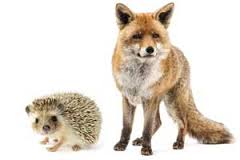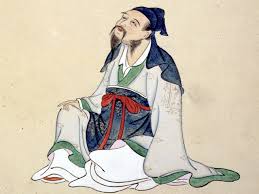
“The fox knows many things, but the hedgehog knows one big thing,” or so Archilochos told us when we were young in the 7th century. Ever since, I’ve been trying to figure out whether I’m a fox poet or a hedgehog poet.
Renaissance men, they were a foxy lot, knowing many things from many different disciplines. It was their point of pride, to the point of competition even. The poster boy? Leonardo da Vinci, of course. Foxier than Reynard the Fox. Or Foxy Loxy. Or any other foxes traipsing around Aesop’s fables instead of being productive.
Me, I lean hedgehog, though I can’t for the life of me identify the “one big thing” I know. Isn’t that what life is all about? Trying to figure out the one big thing? And isn’t that the itch that causes us to scratch out so many poems? Searching for the big thing, in that respect, becomes the Muse’s key of Middle C.
In his book, The Triggering Town, Richard Hugo dispenses with foxes and hedgehogs and buys stock in another split: fictional characters. He distinguishes between Ernest Hemingway’s protagonist Krebs from the story “Soldier’s Home” and William Faulkner’s young protagonist Snopes from the story “Barn Burning.” According to Hugo, we are either Krebs poets or Snopes poets.
Hugo describes Krebs as a man who is, “by birth and circumstance” an insider. His experience in the war and his sensitivity cause him to feel “alienated and outside.” Little Snopes, on the other hand is “by birth and circumstance… an outsider who wants desperately to be in. He wants to be a part of what, from his disadvantageous position, seems a desirable life.”
Taking his metaphor on the road and applying it to American poets, Hugo writes: “Not from birth and circumstance, but by virtue of how they feel about themselves and their relation with the world, as revealed in their poems, many American poets see themselves as (or really are) Krebs or Snopes.”
Hugo’s scorecard looks like so: The Krebs poets are William Carlos Williams, Ezra Pound, Richard Wilbur, e. e. cummings, Wallace Stevens, and Allen Ginsberg. The Snopes poets are T. S. Eliot, Theodore Roethke, Robert Lowell, William Stafford, Louise Bogan, James Wright, Galway Kinnell, and A. R. Ammons.
“For a Krebs poet success means accepting values he knows are phony. For a Snopes poet, success could mean he has cast aside all people (including himself) he believes are doomed to failure and whom he continues to love. In both cases the result could be self-hatred and creative impotency.”
Hugo himself seems drawn to the Snopes crowd. I’ve no idea if the Snopes poets traffic in foxes or hedgehogs, and I’m not even sure I fully grasp what he’s after here, but it seems sure that the two characters arrive at the creative springs via different paths.
And what would the modern equivalent be? The MFA insider crowd, laureled by academia (scratch my back and I’ll scratch yours) vs. the feral poets, reading and writing each day without so much as a sideways glance at universities, residencies, seminars, and workshops? Would the former be the fox/Krebs tribe while the latter is the hedgehog/Snopes one? And where would you fit in, if the poetry world were split in such easy dichotomies?
A head scratcher, I admit. Especially if you feel so mixed up as to identify as a hedgehog/Krebs or a fox/Snopes. Then what?
Write, I guess. When you’re confused by anything, the answer is always “just write.”







